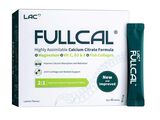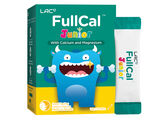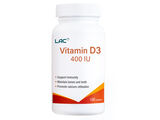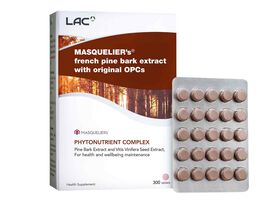Get 'Sun' of That Vitamin D

Did you know that spending a few minutes under the sun can help with our overall well-being?
Growing up, we learned that sunlight is a life essential, from promoting healthy plant and crops growth to producing vitamin D for stronger bones. But are there more benefits of sunlight that we are not aware of?
In Asia, we generally like to avoid the sun as much as possible due to multiple reasons. For example, sticking to the cultural beauty standard of achieving fairer skin, prevent premature aging, or generally reducing risks of skin cancer and skin diseases as a result of UV radiation from sunlight.
Subsequently, the prevalence of vitamin D deficiency in children is high ranging from 47% to 75%[1] despite Malaysia being a tropical country. In another study, out of 380 urban Malays, more than 70% of the participants had insufficient vitamin D levels[2]. Moreover, it is further estimated that more people will experience lower vitamin D levels during the pandemic due to outdoor limitations.
Why is vitamin D so important to us through sunlight?
Sunlight is extremely important because they are an important source of Vitamin D. They are necessary for our bodies to absorb calcium in order to build strong bones and muscles, thus preventing osteoporosis as we age. Without vitamin D, our bodies cannot effectively absorb calcium and phosphorus from the foods we eat, no matter how much nutritious food we eat.
Aside from providing stronger bones, here are more surprising benefits of vitamin D produced by sunlight towards our overall health:
- Supports Our Immune System
You might not know the extensive role of vitamin D can do in our immune system. Recently, there are growing evidences that vitamin D plays a vital role in supporting our immunity and curb viruses. Although, having a normal vitamin D level does not necessarily decrease the risks of getting ill but it reduces the severity of virus infection that may potentially harm us further[3].
- Ability to Focus During the Day & Promotes Better Sleep at Night
Sunlight plays an important part in setting our circadian rhythms by regulating serotonin and melatonin hormone level to be released in our brain.
When we are exposed to sunlight, it stimulates a type of hormone called serotonin which is associated with mood-boosting and helping a person feel calm and stay focused. This is essential to keep us motivated and be productive at work or school during the day.
On the other hand, dark lighting increases the chance of producing another hormone called melatonin which enables you to have a restful sleep at night.
- Reduce Risks of Depression
The serotonin level drops when we do not have enough exposure to the sun, which can potentially lead to higher risks of major depression with seasonal patterns or also known as seasonal affective disorder (SAD). Thankfully, this form of depression is not common in Malaysia and usually tends to affect countries with 4 seasons. Depressive symptoms tend to kick in during winter and disappear by spring for people with SAD.
However, more people are experiencing depressive symptoms due to outdoor limitations and stress caused by the pandemic. As people are keeping themselves indoors, this could potentially be one of the reasons for them to feel moody and sad since they do not experience sufficient sunlight.
Make sure to spend some time walking out to your car porch or balcony to soak in some sunlight and breathe in fresh air once every other day to boost your mood.
How to Ensure that You’re Getting Optimum Level of Vitamin D?
Spend Time Under Sunlight
Spend approximately 5 to 30 minutes under the sunlight between 10.00 am and 3.00 pm for about 2-3 times a week is highly recommended by experts to obtain natural vitamin D[4]. Note that wearing sunscreen or clothing over your skin will not effectively result in vitamin D production.
Consume Food Rich in Vitamin D
Alternatively, we can get vitamin D from our source of food as well. For example, egg yolks, salmon, mackerel, red meat, and liver are foods rich in vitamin D. Try incorporating these foods into your daily diet.
Consume Vitamin D Supplement
On top of a healthy diet and sunlight exposure, it is further recommended to take supplements to reach the optimal level of vitamin D.
You may take supplements formulated with calcium citrate which is high in calcium and magnesium along with vitamin D3, C & E for optimum absorption. These supplements are beneficial in strengthening bones and teeth and lower the risks of osteoporosis and bone fracture.
For this reason, children shouldn’t be neglected as well as they are still in the process of growing and they need to fulfill their daily requirement of calcium. It is important to note that without sufficient vitamin D, it is possible to cause rickets, a disease that caused various deformities including hallmark bowed legs.
The recommended calcium intake for a child per day:
- 1-3 years: 700mg
- 4-9 years: 1000mg
- 10-19 years: 1300mg
If you are planning to be out under the sun for more than a certain period, it is best to apply sunscreen to avoid the harmful effects of excessive sunlight. It is also highly recommended to reapply your sunscreen every 2 hours for consistent protection[5] especially if you’re often sweating since it does wears off and lose its effectiveness.
While sunlight is the most natural way for vitamin D production, too much of it can be dangerous to our bodies. It is extremely important to find the right balance in maintaining the optimal level of vitamin D without putting ourselves at risk. Let’s be mindful to soak up more vitamin D for optimal calcium absorption to build stronger bones and healthier muscles!
[1] https://journals.plos.org/plosone/article?id=10.1371/journal.pone.0200736
[2] https://www.thestar.com.my/lifestyle/health/2021/05/05/we-get-plenty-of-sun-but-still-suffer-from-low-levels-of-vitamin-d
[3] https://www.nst.com.my/opinion/letters/2021/06/701530/ensure-adequate-vitamin-d-levels-curb-covid-19-infection
[4] http://www.myhealth.gov.my/en/vitamin-d-and-sunlight-2/
[5] https://www.colorescience.com/blogs/blog/how-often-to-reapply-sunscreen











